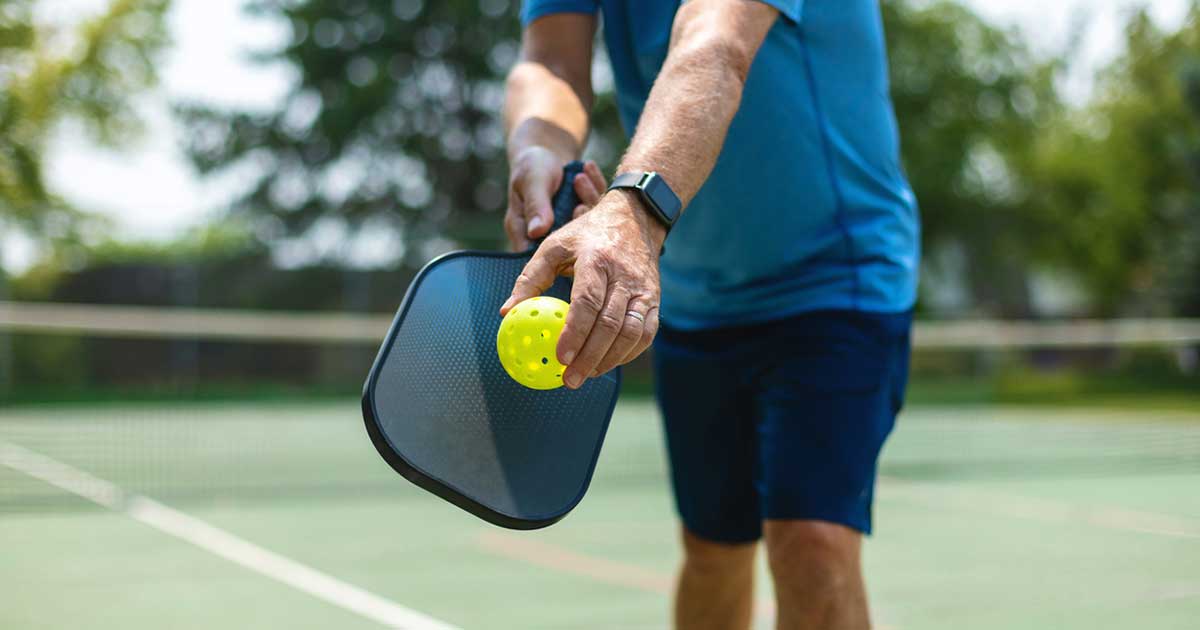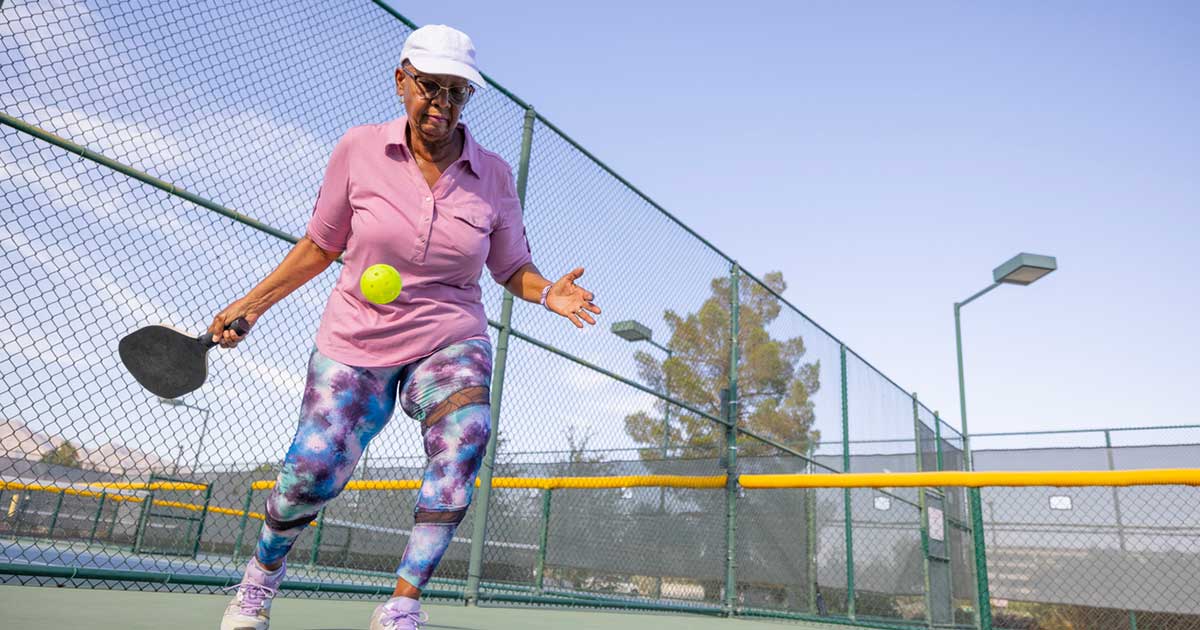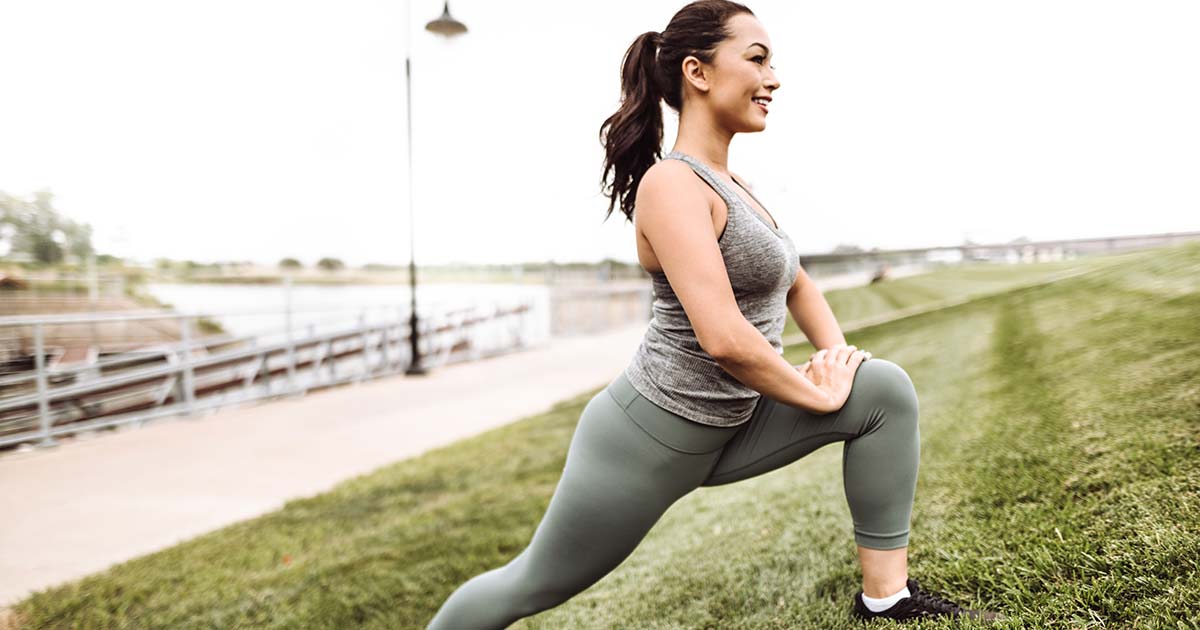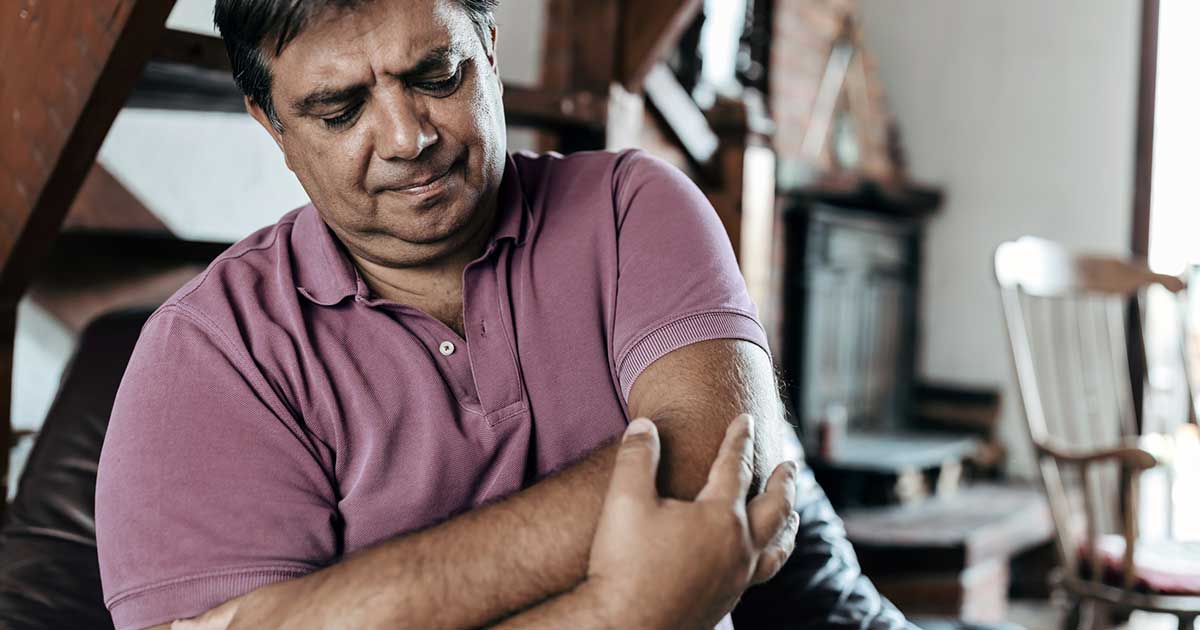Stretches and Exercises to Prevent Pickleball Injuries
Advice to improve your movement, fitness, and overall health from the world's #1 in orthopedics.
The game, which is played with a paddle on a 20-by-44-foot court, has been described as a combination of tennis, ping pong and badminton. “There’s a common misconception that pickleball is not as strenuous as tennis, but it can be, especially if you’re very competitive,” says Kristina Marie Quirolgico, MD, a physiatrist and sports medicine doctor at HSS. “Before you play, you still need to take precautions and warm up like you would with any other sport.”
For anyone who is new to pickleball and hasn’t been very active, Dr. Quirolgico also advises slowly ramping up the amount of time spent playing. “I recommend cross-training to help to build up cardiovascular endurance,” she says. “Swimming and stationary cycling are both great for older people, because they are easy on the joints.”
Even if you take the right pre-game steps, pickleball-related injuries can still happen. Here, Dr. Quirolgico highlights the most frequent pickleball injuries that she sees among her patients, some exercises and stretches that can help prevent them and how to treat them when they happen.

Ankle sprain
“Ankle sprains are the most common pickleball injury I see,” Dr. Quirolgico says. “Pickleball is similar to tennis in that it requires a lot of running and sudden stopping and a lot of side-to-side movements. If your ankle stabilizer muscles are not strong enough, you increase the risk of twisting your ankle.”
If you do twist your ankle, you should ice it as soon as you can. You may also want to wrap it with an elastic bandage or use an ankle support sleeve, which can be purchased at a drugstore. Bandaging it provides compression, which helps keep the swelling down. Elevating the injured ankle can also help, as can taking an over-the-counter pain medication like Tylenol or Advil.
Move to try: Heel Raises
Controlled heel raises help to strengthen your ankles.
- Hold on to a counter or table for balance.
- Stand with your feet about hip-width apart and your toes pointing forward.
- Slowly raise your heels as high as they can go, then lower them just as slowly. Do this several times.
Knee strain
“Because pickleball is popular among older people, a lot of players have underlying arthritis in their knees,” Dr. Quirolgico says. “The twisting and pivoting movements that happen on the court can often aggravate knee arthritis. You may have a sharp, stabbing pain or a momentary feeling of weakness.”
Similar to an ankle sprain, if you strain or twist your knee it’s important to bring the inflammation down. Ice and over-the-counter pain medications can help control swelling, and an elastic bandage or knee brace can provide support.
Move to try: Side-Lying Leg Lift
The side-lying leg lift is particularly helpful for preventing knee injuries because it works the entire leg, all the way up to the hip. Building overall leg strength helps protect the knees.
- Lie on your side, then lift your top leg keeping the knee straight and position it slightly behind you. Keep your hips stacked on top of each other and engage your core.
- Slowly lower your leg before lifting it again. “If you feel it in your butt — your glutes — you know you’re doing it right,” Dr. Quirolgico says.
- Repeat several times, then switch sides.
Pulled hamstring
“It’s very important to stretch and warm up your muscles before playing pickleball,” Dr. Quirolgico says. The hamstrings, or muscles in the backs of your thighs, may get stretched too far or become strained, especially if you’re not warmed up. These injuries often happen during sudden stops on the court, when the muscles contract quickly.
As with other injuries of the lower extremities, icing the injury and taking over-the-counter pain medications are key to feeling better. With any of these injuries, if the pain persists longer than a week or if you can’t put any weight on the injured leg, you may want to see a healthcare provider, Dr. Quirolgico notes.
Move to try: Hamstring Stretch
This warm-up stretches your calves as well as your hamstrings.
- Standing with both feet side by side, extend your left leg in front of you so that your heel is on the ground with your toes pointing up.
- Bend your right knee and hinge at the waist so that your torso angles forward. You should feel a stretch in the back of your thigh.
- Hold for 30 seconds, then switch sides and repeat. Additionally, a slow jog in place can help increase blood flow to the leg muscles before starting a game.
Tendonitis in the wrist, elbow or shoulder
Tendonitis, an inflammation or swelling of the tendons, is an injury caused by overuse. “When you hit the ball in pickleball, you don’t use as much force as you do with tennis because the ball is much lighter,” Dr. Quirolgico says. “But if you’re new to the game or if you’re playing a lot, the repetitive motion can put stress on your tendons.”
Especially if you’re just starting out with pickleball and have not regularly played other racquet sports, it’s important to give yourself a day or two of recovery between sessions. “Once your muscles get used to the movements, you might be able to play more often,” Dr. Quirolgico says.
Similar to injuries in the lower extremities, ice and pain medications can help to reduce inflammation and speed healing. For injuries caused by repetitive motion, rest is especially important in helping your body heal.
Injuries related to falls
When you fall, it’s natural to use your hands to catch yourself. This can result in injuries to the hand, wrist or shoulder. “If you have a lot of pain, it’s probably better to see the doctor and get an x-ray sooner rather than later to make sure nothing is broken,” Dr. Quirolgico says.
If you fall while playing pickleball, you may also hit your head. “If you feel anything out of the ordinary, including blurry vision, a sense of confusion, or extreme sleepiness, it’s important to it checked out to make sure you don’t have a serious injury like a concussion,” she adds.
Move to try: Single-Leg Balance
The best way to prevent falling is to improve your balance.
- Stand with both feet hip-width apart without holding onto anything for support.
- Lift one foot off the ground. Hold your arms out to the sides if you need help balancing.
- Hold for as long as possible, up to a minute on each side. Once you’ve mastered that, you can try standing on something uneven like a pillow or a folded-up blanket.
Published 11/16/2022



